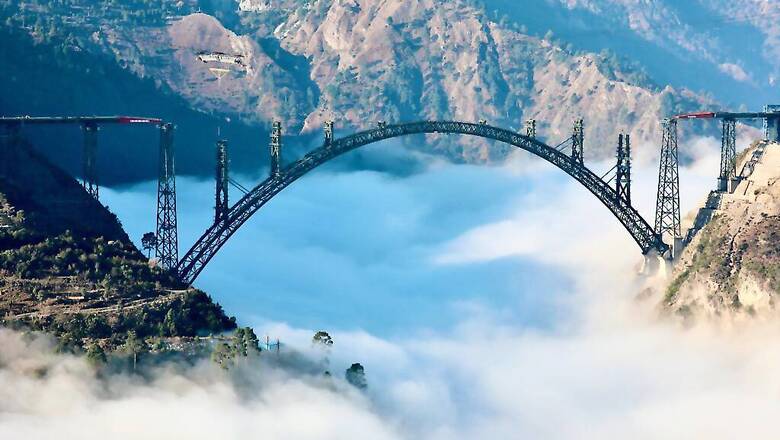
views
Under the shadow of terror till a few years ago, Jammu and Kashmir now is basking in the first rays of development and peace. J&K was the first to launch the District Good Governance Index. Tourism has gone to an all-time high in the last 10 months. During last year, 11,578 recruitments were made, taking the total to 30,000 in three years. There has been the highest-ever air traffic at Jammu and Srinagar airports in recent times. Among all 4,290 panchayats, barring 8-10 where land is not available, each one has a playfield.
Rs 1,000 crore worth of works on national highways and tunnels are going on in Jammu and Kashmir.
To bolster economic growth and development, the Jammu and Kashmir administration has so far signed more than 168 MoUs worth Rs 13,600 crore for investments. Additionally, 6,000 acres of government land has been acquired for setting up industries in the union territory.
Earlier, some constraints discouraged industrialists and large organisations from investing in Jammu and Kashmir. But after the abolition of Article 370 sections, all the obstacles that came into the path of development were removed as the government placed its focus on providing an impetus to business and the economy. The J&K Infrastructure Development Finance Corporation has been set up to provide financial support to various projects that were commissioned years ago but were yet to be completed.
Hydro projects that were in a state of abeyance for more than five decades such as Ujh and Shahpur Kandi have been expedited. Emphasis has been placed on the development of 14 sectors for investments, which include tourism, hydropower, electricity, education, and health.
In a bid to bring about ease of doing business, more than 130 administrative reforms have been undertaken by the central government. The education sector was another focus area for the administration. Seven new medical colleges have been initiated, four of which have already started functioning. The medical seats have also increased from 500 to 955 in colleges, and 25,000 seats have been added in regular degree colleges.
The world’s highest railway bridge over the river Chenab in Jammu and Kashmir was completed in April this year. It is expected to connect the Valley with the rest of India by train for the first time by 2022. The bridge, which has a central span of 467 metres, is built at a height of 359 metres from the bed level.
Women have been amongst the most disadvantaged sections of the former state. Not only were they constitutionally denied rights, but their existing rights were also gradually eroded. Women who married men from outside Jammu and Kashmir were deprived of property rights. But that changed, after the abrogation of Article 370 sections.
Women in Jammu and Kashmir are now able to buy real estate and transfer property to children, even if they get married to a non-resident. Furthermore, another provision was recently added to the domicile laws, wherein the spouse/husband of a native woman, who is a domicile holder in the UT, was made eligible to get a domicile status. Earlier, the spouses of J&K women from outside the union territory were ineligible for applying for a domicile certificate.
Read all the Latest India News here




















Comments
0 comment